23 start with B start with B

The most complete and accessible guide in any language to this key contemporary thinker
Alain Badiou is one of the most inventive and compelling philosophers working in France today—a thinker who, in these days of cynical resignation and academic specialization, is exceptional in every sense. Guided by disciplines ranging from mathematics to psychoanalysis, inspired as much by Plato and Cantor as by Mao and Mallarmé, Badiou’s work renews, in the most varied and spectacular terms, a decidedly ancient understanding of philosophy—philosophy as a practice conditioned by truths, understood as militant processes of emancipation or transformation.
This book is the first comprehensive introduction to Badiou’s thought to appear in any language. Assuming no prior knowledge of his work, it provides a thorough and searching overview of all the main components of his philosophy, from its decisive political orientation through its startling equation of ontology with mathematics to its resolute engagement with its principal competition (from Wittgenstein, Heidegger, and Deleuze, among others). The book draws on all of Badiou’s published work and a wide sampling of his unpublished work in progress, along with six years of correspondence with the author. Peter Hallward pays careful attention to the aspect of Badiou’s work most liable to intimidate readers in continental philosophy and critical theory: its crucial reliance on certain key developments in modern mathematics. Eschewing unnecessary technicalities, Hallward provides a highly readable discussion of each of the basic features of Badiou’s ontology, as well as his more recent account of appearance and “being-there.” Without evading the difficulties, Peter Hallward demonstrates in detail and in depth why Badiou’s ongoing philosophical project should be recognized as the most resourceful and inspiring of his generation.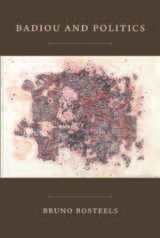
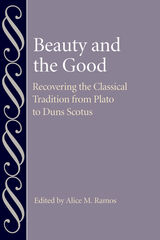
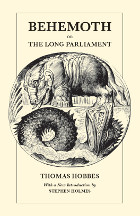
In his insightful and substantial Introduction, Stephen Holmes examines the major themes and implications of Behemoth in Hobbes's system of thought. Holmes notes that a fresh consideration of Behemoth dispels persistent misreadings of Hobbes, including the idea that man is motivated solely by a desire for self-preservation. Behemoth, which is cast as a series of dialogues between a teacher and his pupil, locates the principal cause of the Civil War less in economic interests than in the stubborn irrationality of key actors. It also shows more vividly than any of Hobbe's other works the importance of religion in his theories of human nature and behavior.
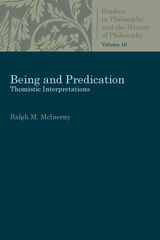

After laying out a range of meanings for the concept of empathy, Fleischacker proposes that what Smith called “sympathy” is very much what we today consider empathy. Smith’s version has remarkable value, as his empathy calls for entering into the perspective of another—a uniquely human feat that connects people while still allowing them to define their own distinctive standpoints. After discussing Smith’s views in relation to more recent empirical and philosophical studies, Fleischacker shows how turning back to Smith promises to enrich, clarify, and advance our current debates about the meaning and uses of empathy.
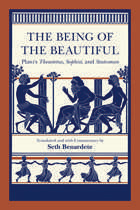
“The translations are masterpieces of literalness. . . . They are honest, accurate, and give the reader a wonderful sense of the Greek.”—Drew A. Hyland, Review of Metaphysics

Truth, reason, and objectivity--can we survive without them? What happens to law, science, and the pursuit of social justice when such ideas and ideals are rejected? These questions are at the heart of the controversies between traditionalists and "postmodernists" that Barbara Herrnstein Smith examines in her wide-ranging book, which also offers an original perspective on the perennial--perhaps eternal--clash of belief and skepticism, on our need for intellectual stability and our experience of its inevitable disruption.
Focusing on the mutually frustrating impasses to which these controversies often lead and on the charges--"absurdity," "irrationalism," "complicity," "blindness," "stubbornness"--that typically accompany them, Smith stresses our tendency to give self-flattering reasons for our own beliefs and to discount or demonize the motives of those who disagree with us. Her account of the resulting cognitive and rhetorical dynamics of intellectual conflict draws on recent research and theory in evolutionary biology, neuroscience, developmental psychology, and the history and sociology of science, as well as on contemporary philosophy and language theory.
Smith's analyses take her into important ongoing debates over the possibility of an objective grounding of legal and political judgments, the continuing value of Enlightenment rationalism, significant challenges to dominant ideas of scientific truth, and proper responses to denials of the factuality of the Holocaust. As she explores these and other controversies, Smith develops fresh ways to understand their motives and energies, and more positive ways to see the operations of intellectual conflict more generally.
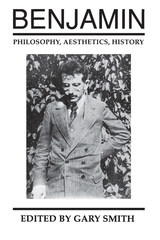
A balance of original work by Benjamin and important commentary on his works, this volume includes the crucial chapter from Benjamin's magnum opus The Arcades Project, his "Program of the Coming Philosophy," and "Central Park," as well as essays by leading scholars (including Theodor W. Adorno, Leo Lowenthal, and Rolf Tiedemann) that treat single philosophical themes and relate his ideas to those of other thinkers such as Gadamer, Goodmann, and Rosenzweig. Gary Smith's introduction to the volume provides an extremely useful and sophisticated entrée for readers unaccustomed to the breadth of Benjamin's philosophical allusions, as well as an informative summation of the contents of the volume. This book will be of interest to philosophers, literary theorists, art historians, anthropologists, and other social scientists.
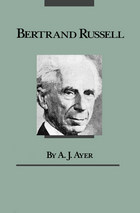
"I am sure [this] is the best introduction of any length to Russell, and I suspect that it might serve as one of the best introductions to modern philosophy. . . . Ayer begins with a brief, austere, and balanced account of Russell's life: as in Russell's autobiography this means his thought, books, women, and politics. Tacitus (and Russell) would have found the account exemplary. Ayer ends with a sympathetic and surprisingly detailed survey of Russell's social philosophy. But the bulk of this book consists of a chapter on Russell's work in logic and the foundations of mathematics, followed by a chapter on his epistemological views and one on metaphysics. . . . I find it impossible to imagine that this book will not remain indefinitely the very best book of its sort."—Review of Metaphysics
"The confrontation or conjunction of Ayer and Russell is a notable event and has produced a remarkable book—brilliantly argued and written."—Martin Lebowitz, The Nation
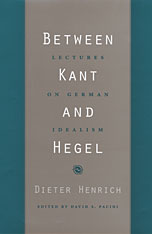
Electrifying when first delivered in 1973, legendary in the years since, Dieter Henrich's lectures on German Idealism were the first contact a major German philosopher had made with an American audience since the onset of World War II. They remain one of the most eloquent explanations and interpretations of classical German philosophy and of the way it relates to the concerns of contemporary philosophy. Thanks to the editorial work of David Pacini, the lectures appear here with annotations linking them to editions of the masterworks of German philosophy as they are now available.
Henrich describes the movement that led from Kant to Hegel, beginning with an interpretation of the structure and tensions of Kant's system. He locates the Kantian movement and revival of Spinoza, as sketched by F. H. Jacobi, in the intellectual conditions of the time and in the philosophical motivations of modern thought. Providing extensive analysis of the various versions of Fichte's Science of Knowledge, Henrich brings into view a constellation of problems that illuminate the accomplishments of the founders of Romanticism, Novalis and Friedrich Schlegel, and of the poet Hölderlin's original philosophy. He concludes with an interpretation of the basic design of Hegel's system.
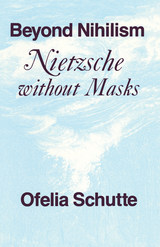
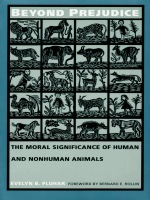
Exposing the traditional view—which restricts the moral realm to autonomous, fully fledged "persons"—as having horrific implications for the treatment of many humans, Pluhar goes on to argue positively that sentient individuals of any species are no less morally significant than the most automomous human. Her position provides the ultimate justification that is missing from previous defenses of the moral status of nonhuman animals. In the process of advancing her position, Pluhar discusses the implications of determining moral significance for children and "abnormal" humans as well as its relevance to population policies, the raising of animals for food or product testing, decisions on hunting and euthanasia, and the treatment of companion animals. In addition, the author scrutinizes recent assertions by environmental ethicists that all living things or that natural objects and ecosystems be considered highly morally significant. This powerful book of moral theory challenges all defenders of the moral status quo—which decrees that animals decidedly do not count—to reevaluate their convictions.

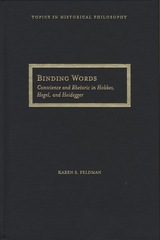
Hobbes's Leviathan, Hegel's Phenomenology of Spirit, and Heidegger's Being and Time dramatize conscience's relation to language and knowledge, morality and duty, and ontology. Feldman investigates how, within these works, conscience is described as binding upon us while at the same time asking how texts themselves may be read as binding.
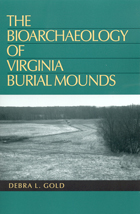
A long-ignored prehistoric mound building people
By the 14th century more than a dozen accretional burial mounds—reaching heights of 12 to 15 feet—marked the floodplains of interior Virginia. Today, none of these mounds built by the nearly forgotten Monacan Indians remain on the landscape, having been removed over the centuries by a variety of natural and cultural causes. This study uses what remains of the mounds—excavated from the 1890s to the 1980s— to gain a new understanding of the Monacans and to gauge their importance in the realm of the late prehistoric period in the Eastern Woodlands.
Based on osteological examinations of dozens of complete skeletons and thousands of isolated bones and bone fragments, this work constructs information on Monacan demography, diet, health, and mortuary ritual in the 10th through the 15th centuries. The results show an overall pattern of stability and local autonomy among the Late Woodland village societies of interior Virginia in which a mixture of maize farming and the collection of wild food resources were successful for more than 600 years.
This book—uniting biological and cultural aspects of the data for a holistic understanding of everyday life in the period—will be of interest to ethnohistorians, osteologists, bioarchaeologists, and anyone studying Late Woodland, Mississippian, and contact periods, as well as middle range societies, in the Eastern Woodlands.
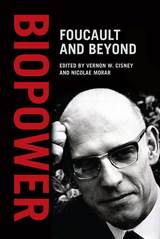
Situating biopower as a radical alternative to traditional conceptions of power—what Foucault called “sovereign power”—the contributors examine a host of matters centered on life, the body, and the subject as a living citizen. Altogether, they pay testament to the lasting relevance of biopower in some of our most important contemporary debates on issues ranging from health care rights to immigration laws, HIV prevention discourse, genomics medicine, and many other topics.
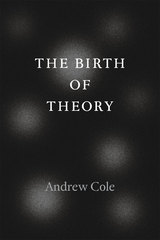
By uncovering these theoretical filiations across time, The Birth of Theory will not only change the way we read Hegel, but also the way we think about the histories of theory. With chapters that powerfully reanimate the overly familiar topics of ideology, commodity fetishism, and political economy, along with a groundbreaking reinterpretation of Hegel’s famous master/slave dialectic, The Birth of Theory places the disciplines of philosophy, literature, and history in conversation with one another in an unprecedented way. Daring to reconcile the sworn enemies of Hegelianism and Deleuzianism, this timely book will revitalize dialectics for the twenty-first century.
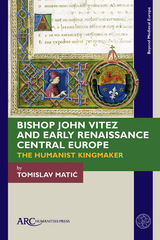

Caws takes us back to Pascal’s youth, when he was a child prodigy first engaging mathematics through the works of mathematicians such as Father Mersenne. She describes his early scientific experiments and his construction of mechanical calculating machines; she looks at his correspondence with important thinkers such as René Descartes and Pierre de Fermat; she surveys his many inventions, such as the first means of public transportation in Paris; and she considers his later religious exaltations in works such as the “Memorial.” Along the way, Caws examines Pascal’s various modes of writing—whether he is arguing with the strict puritanical modes of church politics, assuming the personality of a naïve provincial trying to understand the Jesuitical approach, offering pithy aphorisms in the Pensées, or meditating on thinking about thinking itself.
Altogether, this book lays side by side many aspects of Pascal’s life and work that are seldom found in a single volume: his religious motivations and faith, his scientific passions, and his practical savvy. The result is a comprehensive but easily approachable account of a fascinating and influential figure.
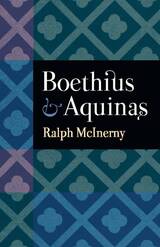
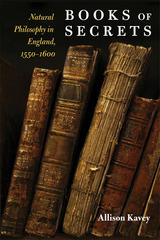
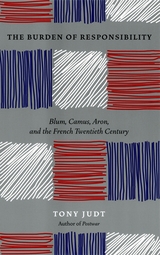
Through the prism of the lives of Leon Blum, Albert Camus, and Raymond Aron, Judt examines pivotal issues in the history of contemporary French society—antisemitism and the dilemma of Jewish identity, political and moral idealism in public life, the Marxist moment in French thought, the traumas of decolonization, the disaffection of the intelligentsia, and the insidious quarrels rending Right and Left. Judt focuses particularly on Blum's leadership of the Popular Front and his stern defiance of the Vichy governments, on Camus's part in the Resistance and Algerian War, and on Aron's cultural commentary and opposition to the facile acceptance by many French intellectuals of communism's utopian promise. Severely maligned by powerful critics and rivals, each of these exemplary figures stood fast in their principles and eventually won some measure of personal and public redemption.
Judt constructs a compelling portrait of modern French intellectual life and politics. He challenges the conventional account of the role of intellectuals precisely because they mattered in France, because they could shape public opinion and influence policy. In Blum, Camus, and Aron, Judt finds three very different men who did not simply play the role, but evinced a courage and a responsibility in public life that far outshone their contemporaries.
"An eloquent and instructive study of intellectual courage in the face of what the author persuasively describes as intellectual irresponsibility."—Richard Bernstein, New York Times
READERS
Browse our collection.
PUBLISHERS
See BiblioVault's publisher services.
STUDENT SERVICES
Files for college accessibility offices.
UChicago Accessibility Resources
home | accessibility | search | about | contact us
BiblioVault ® 2001 - 2025
The University of Chicago Press









